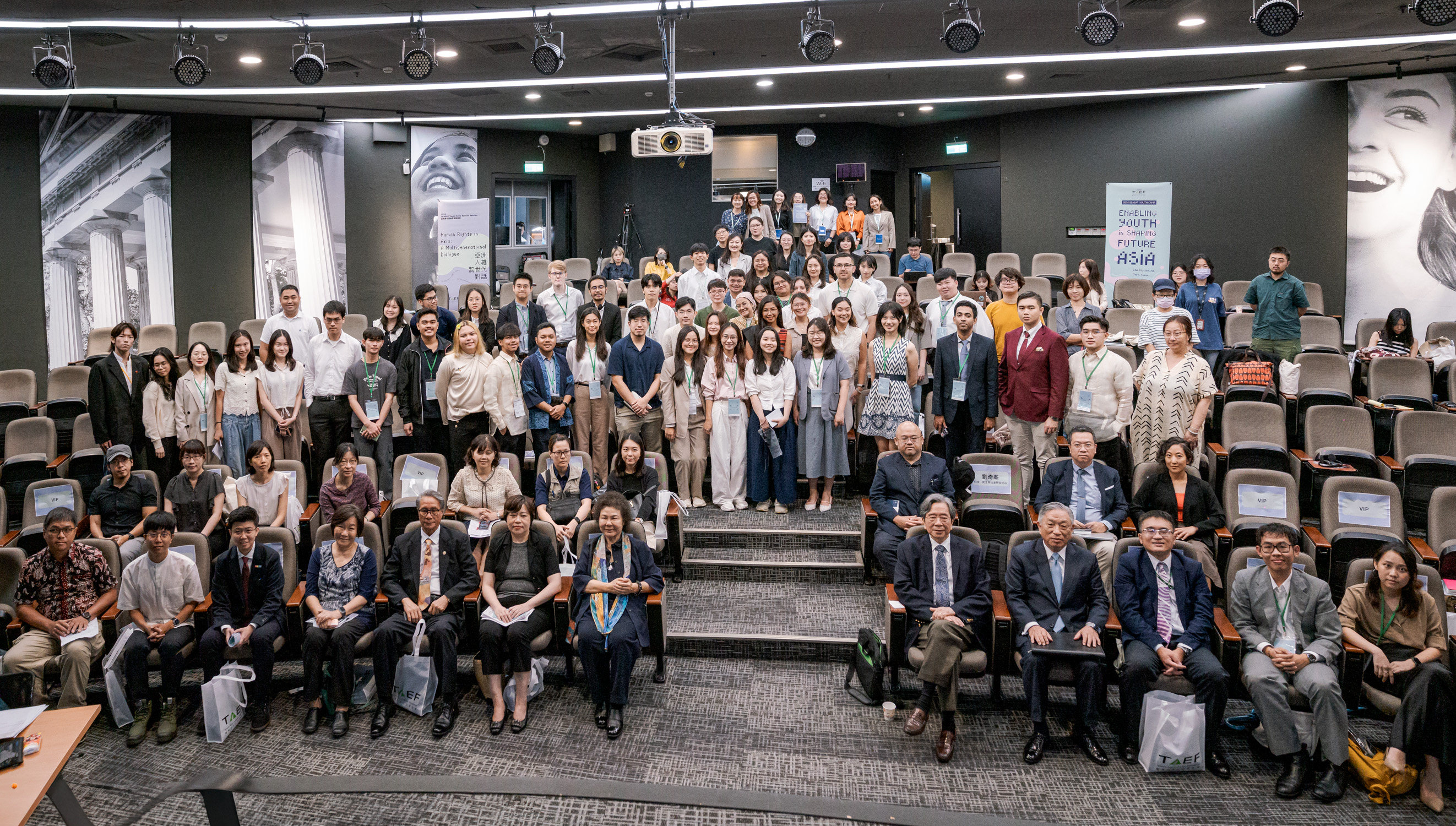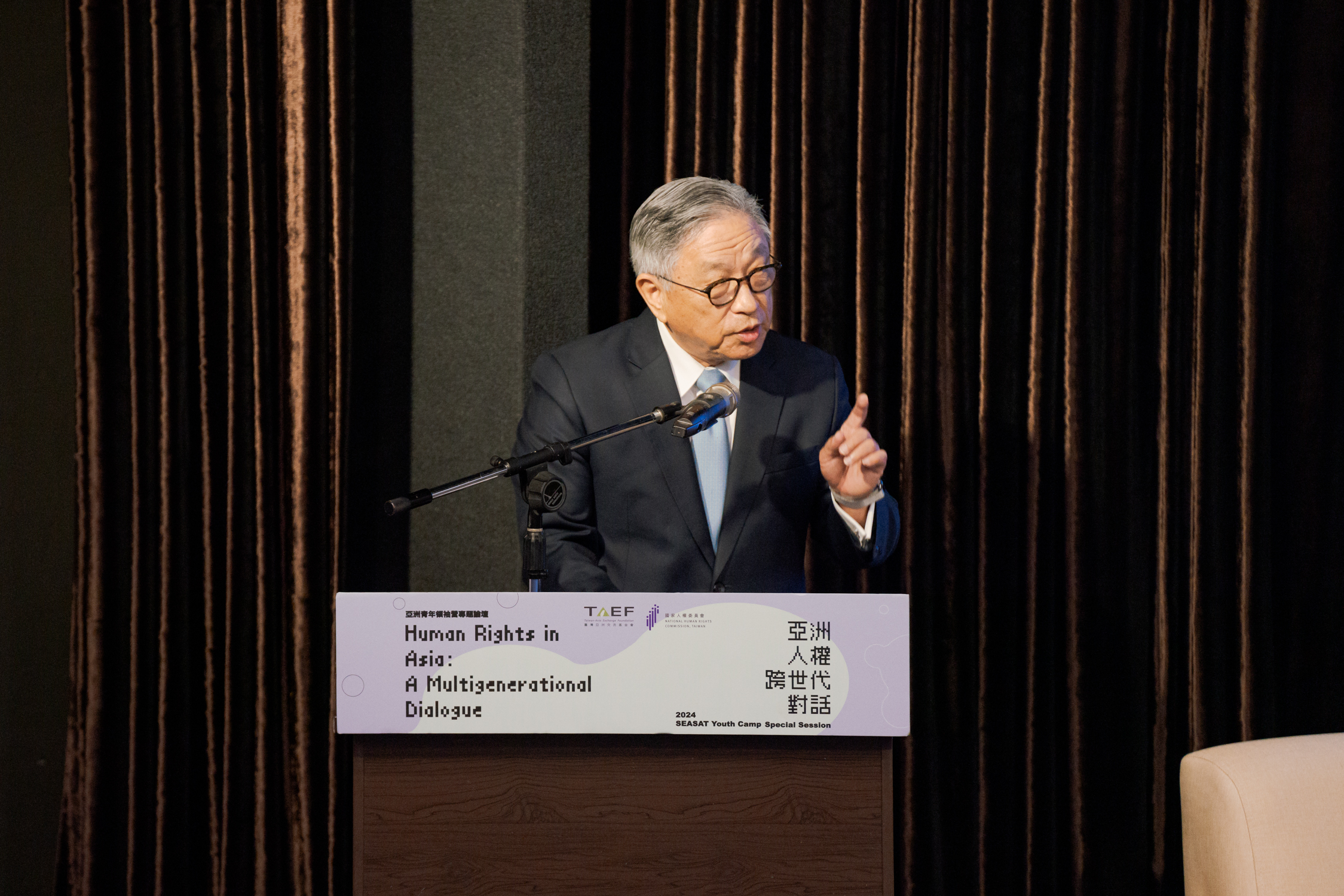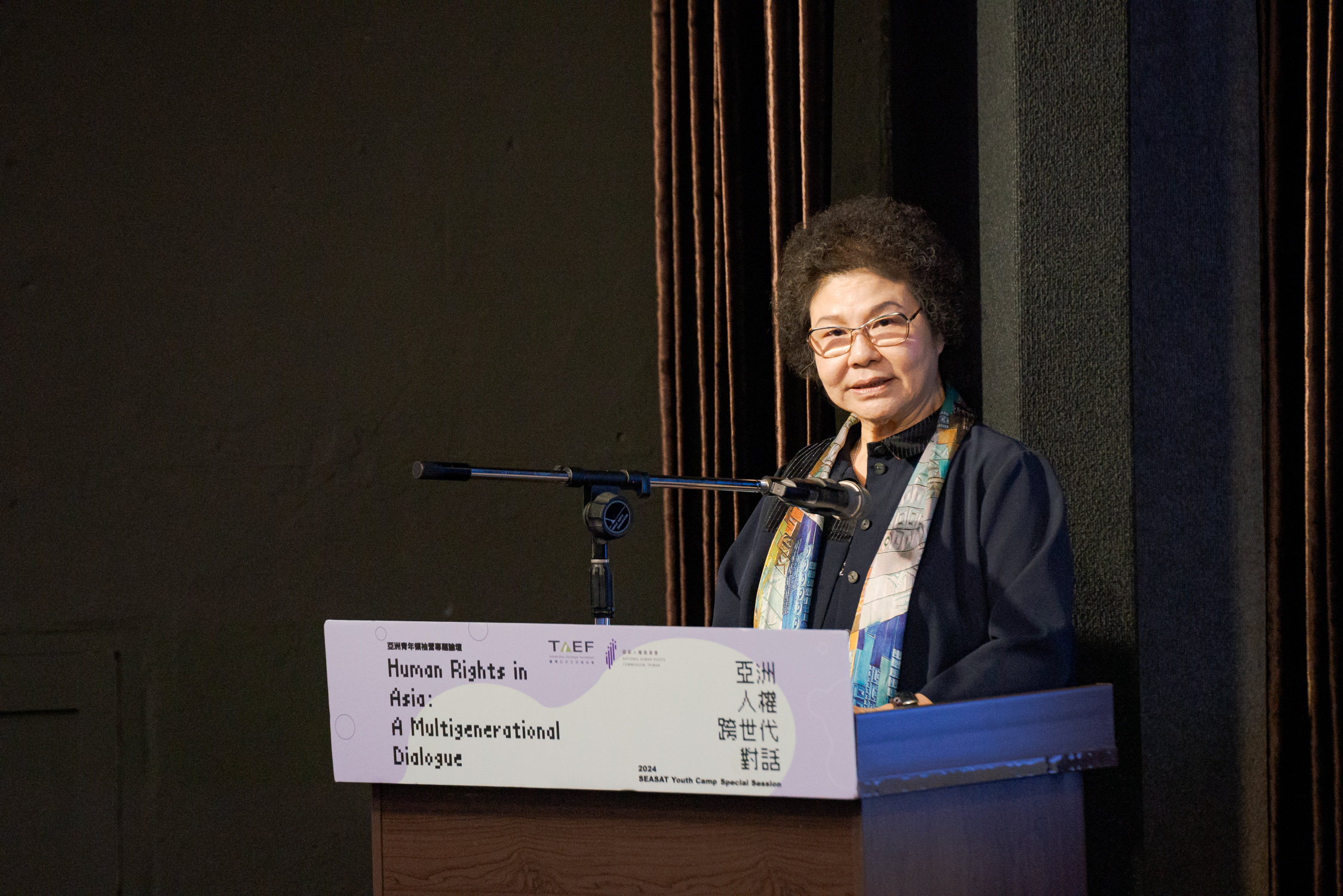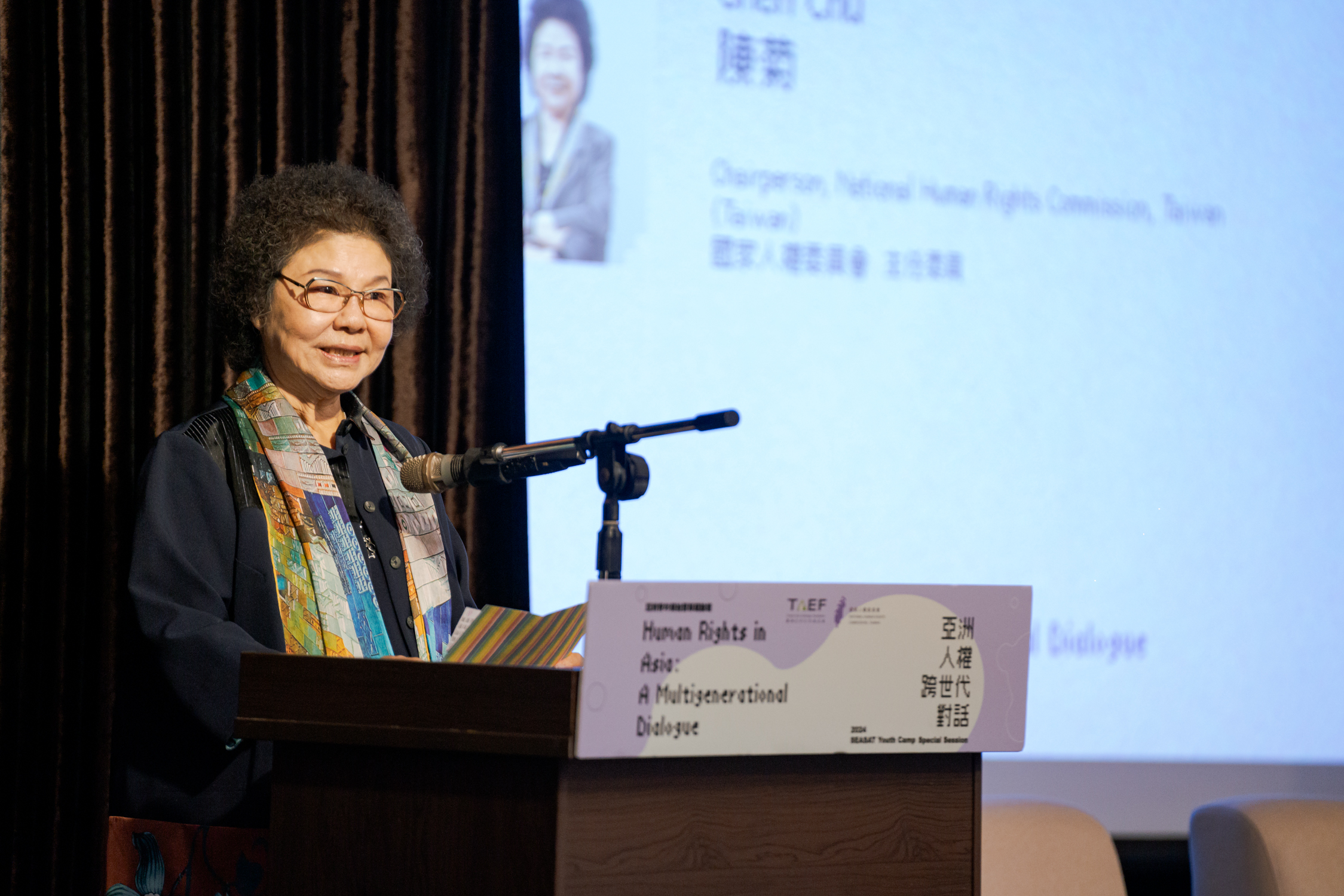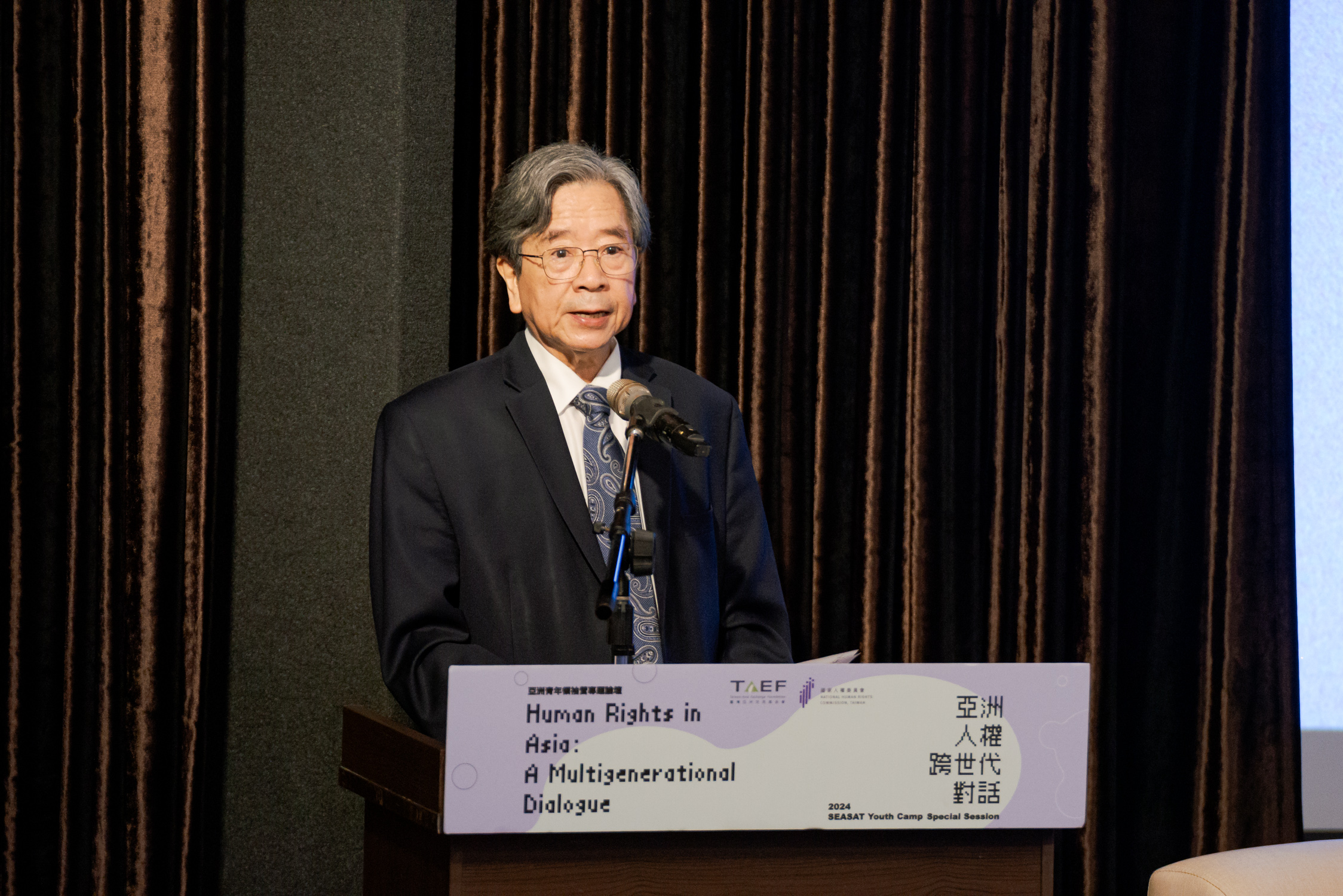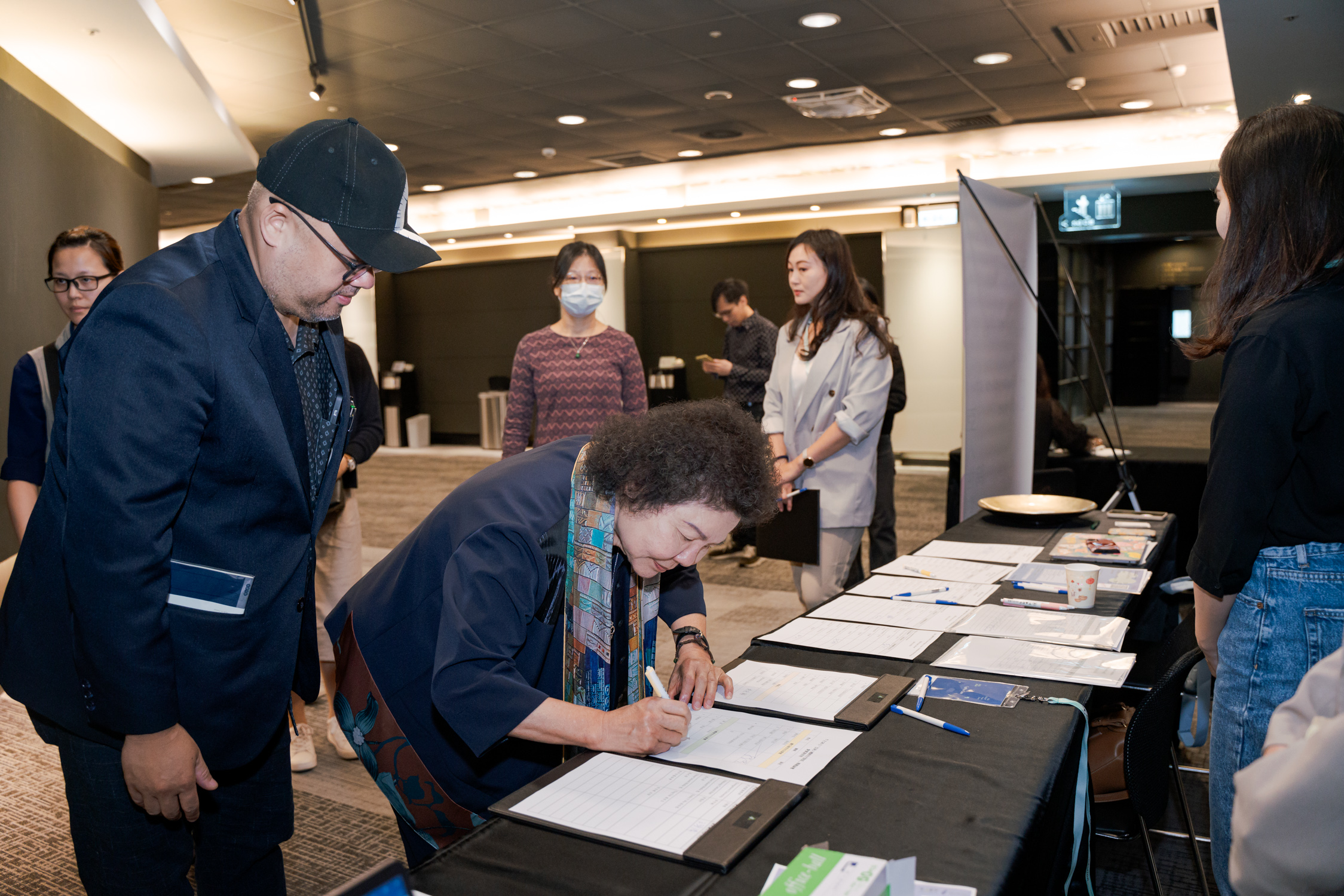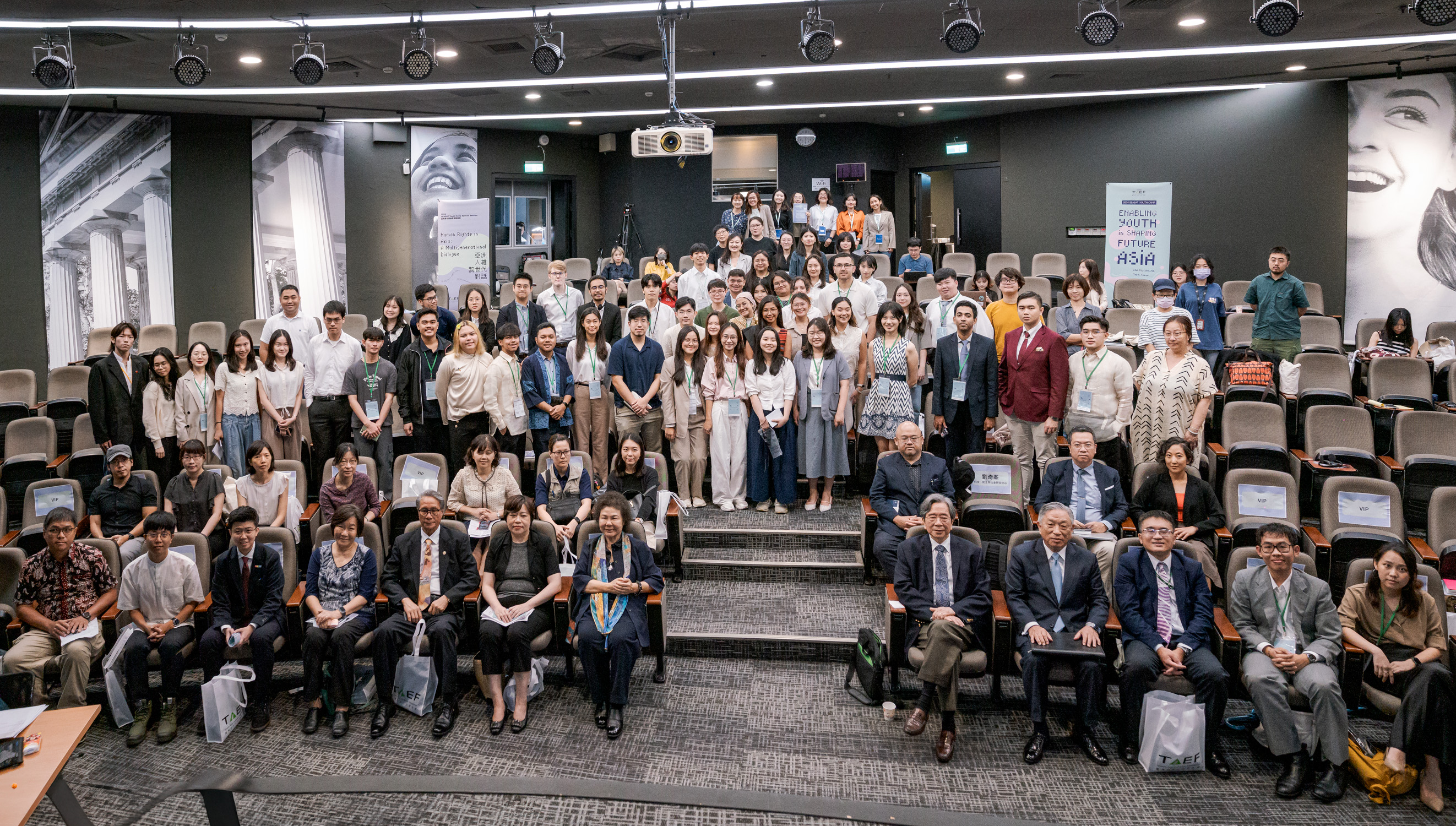Taiwan -Asia Exchange Foundation (TAEF) and National Human Rights Commission (NHRC) co-hosted the “Human Rights in Asia: A Multigenerational Dialogue” today, July 26th. They have invited the youth from Taiwan, Southeast Asia and South Asia to discuss the challenges and opportunities which young people from different Asian country are facing today.
The development of human rights is the foundation of society. The values, systems, and challenges related to human rights in Asian countries differ from those in Western countries and vary among themselves. Taiwan, which has made exemplary progress in the human rights development, has rare exchanges with neighboring Southeast Asian and South Asian countries. Meanwhile, with the trends of globalization, technological proliferation, and information accessibility, the youth, who are the main force for future society, are expressing new generational demands on human rights issues. Transforming these demands into substantive participation requires more discussion and diverse cross-border and cross-cultural perspectives to foster regional consensus, integrate strengths, and implement human rights that are inclusive of all groups.
This forum, centered around the key themes of "cross-border" and "intergenerational" dialogue, took place today. The opening ceremony featured speeches by TAEF Chairman Hsin-Huang Hsiao, Human Rights Commission Chairperson Chu Chen, and Deputy Minister of MOFA Chung-Kwang Tien. In his opening speech, TAEF Chairman Hsin-Huang Hsiao mentioned that Taiwan has made exemplary progress in advancing human rights, but there is still insufficient exchange on this issue with neighboring Asian countries. Therefore, through this forum, he hoped to engage in in-depth dialogues with outstanding human rights advocates from Southeast Asia, focusing on their respective areas of concern and roles in public participation. The goal is to deepen the consensus on human rights issues in Asia and jointly create a future society as “people-centered “, focusing on human dignity.
Chairperson Chen Chu of the National Human Rights Commission stated: "As a first-generation human rights worker in Taiwan, I am grateful for the opportunity to reflect on the challenges and opportunities in a cross-border and intergenerational environment with young advocates from Southeast Asia. Currently, Taiwan ranks second in the world for freedom, according to the 2024 “Freedom in the World” Report, just behind Japan. From a period of severe repression to becoming one of the freest countries today, Taiwan's progress is based on the relentless efforts of generations and the international community's pressure on the authoritarian regime at the time. She emphasized, 'Only by joining hands and working together can human rights and democracy continue to advance.'"
Deputy Minister of MOFA, Tien Chung-kwang, noted in his speech: "The U.S. Department of State's 2024 report also recognizes Taiwan's smooth democratic progress and commitment to human rights. Taiwan's democratic transition was a difficult process, from an authoritarian regime to the establishment of democratic values. Taiwan has now become a beacon of democratic values in Asia, providing an exemplary model for other Asian countries. Since human rights are universal values, they should not be confined by national borders. Taiwan hopes to continue collaborating with other Asian countries to further advance the value of human rights."
This forum is a special session of the flagship event "SEASAT Youth Camp," (hereinafter referred to as "Youth Camp") from TAEF’s Taiwan-Asia Youth Engagement program. It is moderated by Human Rights Commisioner Ta-hua Ye and features Taipei City Councilor Miao Po-ya, Taiwan Youth Association for Democracy President Chang Yu-meng, Taiwan Association for Human Rights Senior Researcher Shih Yi-hsiang, and two Youth Camp delegates as panelists, Kay Thwe Oo from Myanmar, who focuses on refugees on the Thai-Myanmar border, and Phuc Thanh Mai Vo from Vietnam, an LGBTIQ advocate.
Taipei City Councilor Miao Po-ya mentioned in the discussion that an important achievement of the previous generation's gender equality movement in Taiwan was the establishment of the system. Taiwan's democratic process has always been decoupled from the international human rights system. How to make the Taiwanese public understand the international human rights system and how to make the international community aware of Taiwan's human rights movement are important issues now. Another issue is how Taiwan's freedom of speech under democracy face the misinformation campaigns that exploit this system.
President Chang Yu-meng of the Taiwan Youth Association for Democracy talked about the so-called "daily democracy." Facing school environments with restrictions on haircuts and prohibitions on romantic relationships, how can we expect the new generation to develop democratic literacy? Through step-by-step efforts, Taiwan gradually lifted school bans, including the military instructor system, which is a manifestation of daily democracy.
Kay Thwe Oo from Myanmar, whose work focuses on refugees of the Thai- Myanmar border, mentioned that the refugees she works with use mobile phones as their primary digital devices. The availability of various digital devices for disseminating digital democracy is also a crucial aspect. Phuc Thanh Mai Vo, an LGBTIQ advocate from Vietnam, shared about the development of digital diplomacy in Vietnam. He faces malicious voices in the digital space while advocating for LGBTIQ rights. For example, opponents use advocates’ own rhetoric of "family" to attack advocates, accusing them of distorting Vietnam's traditional family values. These conflicts also pose challenges in digital diplomacy.
The successful hosting of this forum not only provided a platform for in-depth exchanges among young people from Asian countries but also laid a solid foundation for future cross-border and intergenerational human rights cooperation. TAEF and the Human Rights Commission hope that through such dialogues, we can continue to promote the development of human rights in the Asian region, creating a more inclusive society. They look forward to more opportunities in the future to gather collective strength, advance together.
